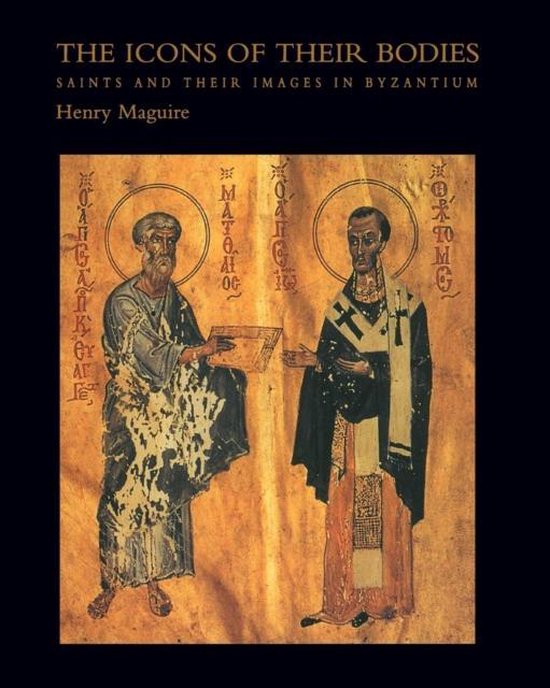
Icons Of Their Bodies
The Byzantines surrounded themselves with their saints, invisible but constant companions, who were made visible by dreams, visions, and art. This book aims to analyze the logic of the saint's image in Byzantium, both in portraits and in narrative scenes. It emphasizes on the poems inscribed by the Byzantines upon their icons.
The Byzantines surrounded themselves with their saints, invisible but constant companions, who were made visible by dreams, visions, and art. The composition and presentation of this imagined gallery followed a logical structure, a construct that was itself a collective work of art created by Byzantine society. The purpose of this book is to analyze the logic of the saint's image in Byzantium, both in portraits and in narrative scenes. Here Henry Maguire argues that the Byzantines gave to their images differing formal characteristics of movement, modeling, depth, and differentiation, according to the tasks that the icons were called upon to perform in the all-important business of communication between the visible and the invisible worlds. The book draws extensively on sources that have been relatively little utilized by art historians. It considers both domestic and ecclesiastical artifacts, showing how the former raised the problem of access by lay men and women to the supernatural and fueled the debates concerning the role of images in the Christian cult. Special attention is paid to the poems inscribed by the Byzantines upon their icons, and to the written lives of their saints, texts that offer the most direct and vivid insight into the everyday experience of art in Byzantium. The overall purpose of the book is to provide a new view of Byzantine art, one that integrates formal analysis with both theology and social history.
The Byzantines surrounded themselves with their saints, invisible but constant companions, who were made visible by dreams, visions, and art. The composition and presentation of this imagined gallery followed a logical structure, a construct that was itself a collective work of art created by Byzantine society. The purpose of this book is to analyze the logic of the saint's image in Byzantium, both in portraits and in narrative scenes. Here Henry Maguire argues that the Byzantines gave to their images differing formal characteristics of movement, modeling, depth, and differentiation, according to the tasks that the icons were called upon to perform in the all-important business of communication between the visible and the invisible worlds. The book draws extensively on sources that have been relatively little utilized by art historians. It considers both domestic and ecclesiastical artifacts, showing how the former raised the problem of access by lay men and women to the supernatural and fueled the debates concerning the role of images in the Christian cult. Special attention is paid to the poems inscribed by the Byzantines upon their icons, and to the written lives of their saints, texts that offer the most direct and vivid insight into the everyday experience of art in Byzantium. The overall purpose of the book is to provide a new view of Byzantine art, one that integrates formal analysis with both theology and social history.
| Auteur | | Henry Maguire |
| Taal | | Engels |
| Type | | Paperback |
| Categorie | | Mens & Maatschappij |